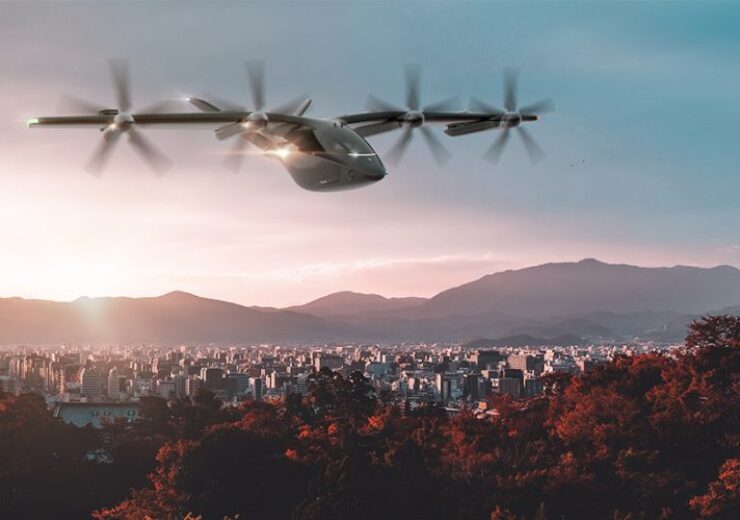The companies will conduct market research for the implementation of air mobility in the East Asian country

Marubeni has signed a conditional pre-order option for up to 200 of Vertical’s aircraft. (Credit: Vertical Aerospace Group Ltd.)
Toyko-headquartered Marubeni and Marubeni Aerospace have entered into a partnership with Vertical Aerospace Group to commercialise air mobility in Japan.
Under the partnership, the companies will conduct market research for the implementation of air mobility in the East Asian country.
Vertical Aerospace is engaged in the development of electric Vertical Take-Off and Landing (eVTOL), which is used in air mobility.
The eVTOL is expected to make a major contribution to climate change countermeasures in the aviation industry, as it reduces greenhouse gas emissions significantly.
Vertical Aerospace is developing eVTOL in collaboration with European certification agencies and with support from the UK government. The company has already secured orders for up to 1,000 aircraft from Airlines and Aircraft Leasing Company.
In Europe and the US, the development and certification of eVTOL and the framing of rules related to its operation are said to be advancing rapidly.
Japan has also set a target to commercialise the transportation of people and goods by air mobility after 2023.
The partnership between Marubeni and Vertical will investigate issues related to eVTOL aircraft certification in Japan.
It will also carry out research on infrastructure, such as takeoff and landing ports, that is needed for eVTOL operation.
As part of the partnership, Marubeni has also signed a conditional pre-order option to purchase up to 200 of Vertical’s aircraft.
The Japanese company stated: “Marubeni will utilize its know-how cultivated through its network in the aviation industry and diversified business activities to promote the implementation of air mobility in Japan, such as the formation of the ecosystem necessary for operations, in collaboration with Vertical.
“Marubeni will create a society where air travel is safer and more accessible, and at the same time will contribute to climate change countermeasures, including low-carbon and decarbonisation.”
The partnership comes in the wake of growing worldwide attention for air mobility as a next-generation means of transportation.
The number of passenger aircraft in operation stood at about 24,000 as of the end of 2019. In the coming years, the number of air mobility is anticipated to grow to about 100,000.


